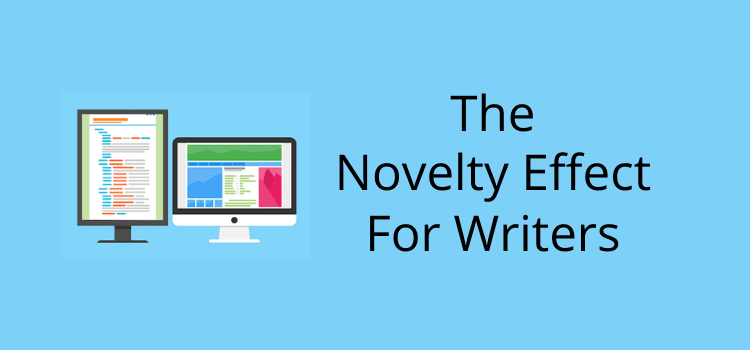
Your writing voice is how you express yourself and your ideas in writing.
It’s about your sentence structures, vocabulary choices, attitude, and even your personal views.
Like speaking, it’s not about what you say, but how you say it. That’s what makes your voice unique.
When you understand your voice and learn to accept and use it, it is one of the most positive steps forward for any writer.
How do you define writing voice?
If you gave two writers the same writing prompt to describe a storm, you would get completely different results due to voice.
For example, one might write, “The heavens opened in a thunderous fit of rage,” while another says, “A clap of thunder and heavy rain started pelting down; just our luck.”
Both describe a storm, but the voices are completely different. One is literary and dramatic, while the other is dry and sarcastic.
Voice is the distinct personality that comes through in your writing. It’s how your words “sound” on the page. It is shaped by your tone, word choice, rhythm, and the way you frame your ideas.
A casual voice is like chatting with a friend over coffee: “To be honest, writing is tough work.”
However, a more literary voice could use imagery and rhythm: “Each word, hand-crafted in silence, yet destined to fail.”
Voice is not a writing style, which changes depending on what you’re writing.
Your voice tends to stay the same, whether you are writing a short story, an article, or a novel.
Readers don’t always recognise it, but they’ll often say something like, “I love how you write. It just feels so real.”
That’s the goal with voice; you always want it to sound like you.
What do I sound like?
My wife says that she can spot my writing in an instant. However, when I ask her how she does it, she can’t tell me. “It’s just you.”
That’s why analyzing your voice can help you answer the question. In my case, I know I like to speak directly to my readers as if I were there with them.
When writing articles, I use the second-person point of view frequently.
I tend to avoid complex vocabulary and keep my sentences relatively short to ensure that my writing is easy to read and understand.
For informational writing, I like to “chunk” ideas or advice into pieces that are easier for readers to grasp.
Another identifiable part of my voice is sharing my knowledge, but hopefully, without imposing it on my readers.
My fiction writing is similar in that I keep things simple by avoiding long-winded poetic descriptions and get to the point quite quickly.
I vividly recall one of my readers posting a review that read in part: “Such a beautiful story, but I wished it was longer.” A compliment, I think, but in my mind, the story was complete at around 30,000 words, and any more would have simply been padding.
As for tone, I steer clear of sarcasm, but I occasionally use humor or even a little satire.
To go back to my wife, it’s probably that my personality in writing is similar to how I speak, so she can identify with that.
I am a man of few words, preferring to listen rather than speak. While some can take an age to express their opinion, I usually have it all covered in ten or twenty words.
You might call it tone or style, but these are only parts of voice in writing.
Your voice, like mine, is unique, but it can be challenging to pin down the reasons why.
The best way is to grab a handful of your writing pieces and see what they have in common.
The key elements of voice

When you look at your writing, take note of the following points to see if there are common denominators.
1. Tone: This is the overall mood or attitude you convey in your writing. It could be friendly, formal, humorous, sarcastic, or satirical.
2. Personality: It’s the unique character or style that you use, making your writing distinctly yours.
3. Sentence Structure: The rhythm and flow you use to arrange your sentences, either short and punchy or long and flowing.
4. Word selection: This is the vocabulary and language style you prefer. It could be simple, elaborate, casual, or formal.
5. Perspective: The point of view you use determines how you speak to the reader. It can be first-person, second-person, or third-person.
6. Pacing: It is how quickly or slowly your writing moves and how it affects your reader.
7. Use of Imagery and Detail: How you describe and if you involve the senses to bring more reality to your descriptive writing.
8. Authenticity: This means being genuine and consistent to help readers trust and connect with your subjects or topics.
9. Syntax Choices: Syntax is the way you arrange words and phrases to create your signature style. It can include the use of repetition, parallelism, or unconventional grammar for effect.
10. Level of Formality: It is whether you use mostly formal or informal register in your writing.
These ten elements create your distinctive and unique writing voice, so it’s worthwhile understanding them to help you identify yours.
It’s not formulaic writing
If all your writing follows the same formula, it will feel mechanical and forgettable.
Your writing voice isn’t a template, a fill-in-the-blank formula, or a checklist.
Voice comes naturally, so your writing sounds like you, and not like anyone else.
Yes, structure and good grammar help keep things clear.
But your voice can make a few tweaks here and there, and even bend or break some grammar rules.
So yes, you can learn the rules, but always let your unique tone shine through.
That’s what readers connect with and will keep them reading.
Summary
If you read news articles, you can’t help but notice that they are often very similar.
It’s because newspaper writers and journalists generally have to follow a strict writing style guide.
So, it’s unusual that one of my favorite writers is a newspaper columnist.
Marina Hyde writes for The Guardian and has a unique, witty, sarcastic, and satirical style. Here’s a quick tidbit:
“With as much as two weeks to kill before nuclear winter sets in, many of you will be looking to road-test your new fallout suits.”
Her style reminds me a bit of Douglas Adams, and sometimes even Monty Python.
Whether she is your cup of tea or not, the one thing she possesses is an instantly recognizable and unique writing voice.
It’s what attracted me in the first place, and has kept me reading her column for years now.
That’s the power of voice, and why you should identify yours and use it to your best advantage.
Related Reading: Two Words That Can Literally And Actually Annoy Readers
Share This Article


